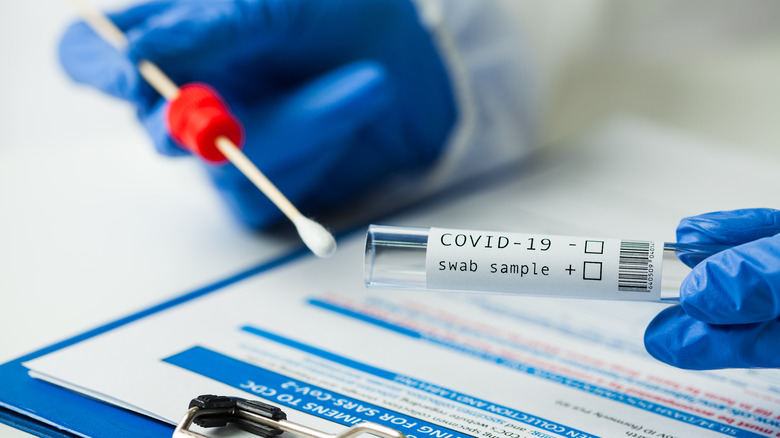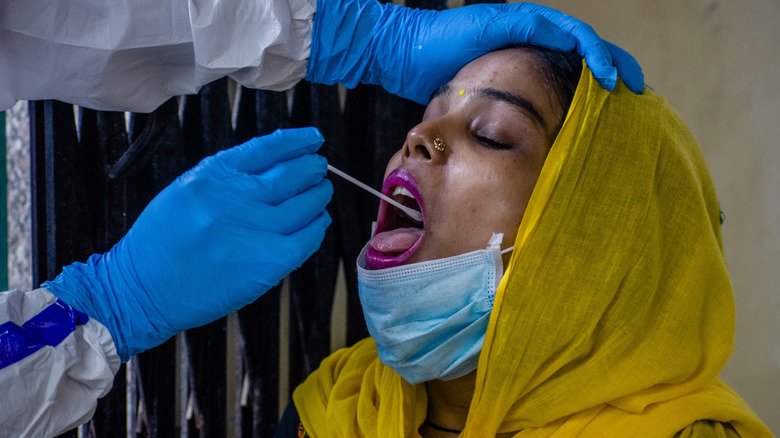This New Tool Shows How Well COVID-19 Tests Perform Against Variants
Seattle was once the epicenter of initial outbreaks of COVID-19 cases in the United States. One of the newest tools being used to combat new variants is the result of work by PATH, a global health nonprofit located in the city. The database helps users, particularly government officials and policymakers, understand the capability of COVID-19 tests to recognize all strains of the virus (via GeekWire). Information available via the tool includes test performance and commercial availability, as well as where the tests are manufactured and approved for use. PATH's associate director for diagnostics noted, "We did not see any kind of data aggregator built, and so we just felt the need to fill that gap."
The tool will look at the efficacy of both rapid antigen tests and PCR (polymerase chain reaction) tests in fighting variants being closely followed by the CDC, including B.1.1.7, B.1.427, and B.1.429 (via Centers for Disease Control and Prevention). This is crucial, as the B.1.1.7 variant is 50% more transmissible, and was visible in ten times more sampled cases in late March than had been the case in early February.
Creating more health equity is the goal
Because of the scope of their work, PATH wants to make the tool available not just to those in the United States, but globally. In particular, the goal of their work is to break down health barriers that those in low-income and middle-income countries face in order to help them fight ongoing outbreaks of the COVID-19 virus (via GeekWire). The tool is designed to help create health equity for nations and regions that need to procure COVID-19 tests from the major hubs that are manufacturing them.
The nonprofit created its COVID-19 diagnostics dashboards to "support product selection and procurement decisions," and they update the database on a monthly basis. Though there have been more than 1,000 tests in development or already commercialized, only a couple hundred were authorized by "stringent regulatory authorities," and only 20 received the World Health Organization (WHO) Emergency Use Listing (via PATH). But for those making life-or-death decisions for their communities, that is still a high number of options to consider.


